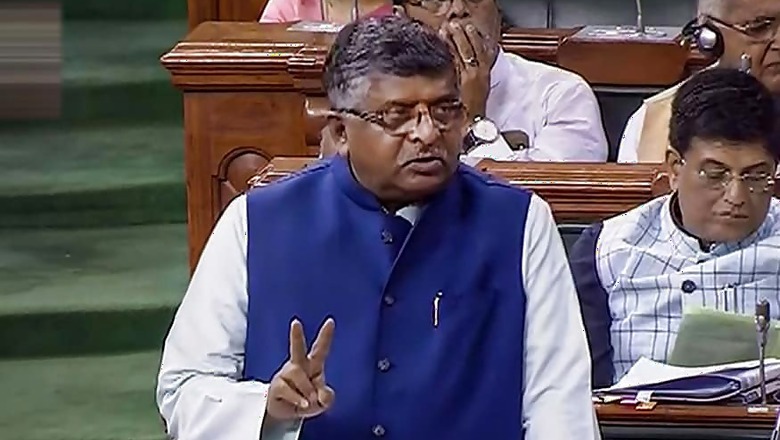
views
New Delhi: The 2019 general elections held between April and May 2019 were dogged by controversies. While name-calling and remarks made headlines, lesser-known instances of fake or false news on social media were rampant as well.
Union Minister of Law, Communications and Information technology Ravi Shankar Prasad on Wednesday informed the Lok Sabha that the recently held general and Assembly elections reported 154 cases of fake news/false news/misinformation.
“The (Election) Commission had received a majority of such cases as complaints from social media nodal officers appointed at Media Certification and Monitoring Committee (MCMC) at the Office of the Chief Electoral Officer,” he said. The commission, in pursuance of ‘voluntary code of ethics’, had directed several social media platforms to remove content that spread such news.
The mammoth election to constitute the 17th Lok Sabha, where 15 million citizens aged 18-19 years became eligible to vote for the first time, witnessed 543 lawmakers take up office. Of the total 900 million eligible voters 67 per cent exercised their franchise, making this the largest-ever election in the world.
The data was released by the Law Ministry and Election Commission following a question asked by South Goa MP Cosme Francisco Caitano Sardinha in the Lok Sabha.
According to the data released on “cases where social media team of the commission had suo-moto reported cases to social media platforms,” 46 cases came from Facebook, 97 from Twitter and 11 from YouTube. However, a first information report (FIR) was filed only in one case of false news over the indelible ink.
“Tweets spreading misinformation regarding indelible ink was noticed by the social media team of the Commission. The tweets were intended to mislead voters of a specific community,” Prasad had noted in the annexure.
Notable cases of false information include Facebook posts regarding 20 lakh EVMs gone missing (22), transportation of EVM without security (11) and tweets spreading misinformation about EVMs (84).
Sardinha had also asked a question whether the poll panel had considered “banning social media messaging apps like WhatsApp during elections”. To this, the law minister said no such proposal was taken up by the authorities.
To battle the rising tide of false information on social media, the Press Information Bureau (PIB) has decided to set up a fact-checking unit to identify and counter any fake news circulating about the government and its policies, the Hindustan Times reported.
This step assumes significance after the Ministry of Information and Broadcasting in 2016 had suggested expanding its analytics wing to monitor social media.
















Comments
0 comment